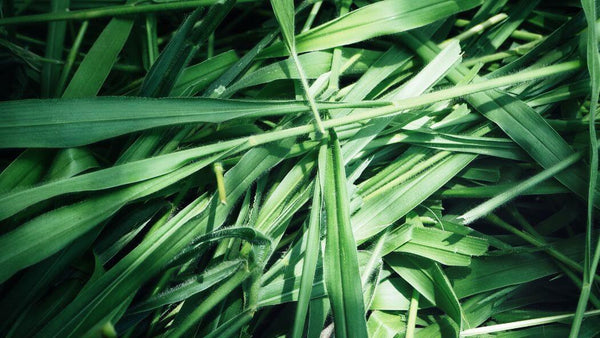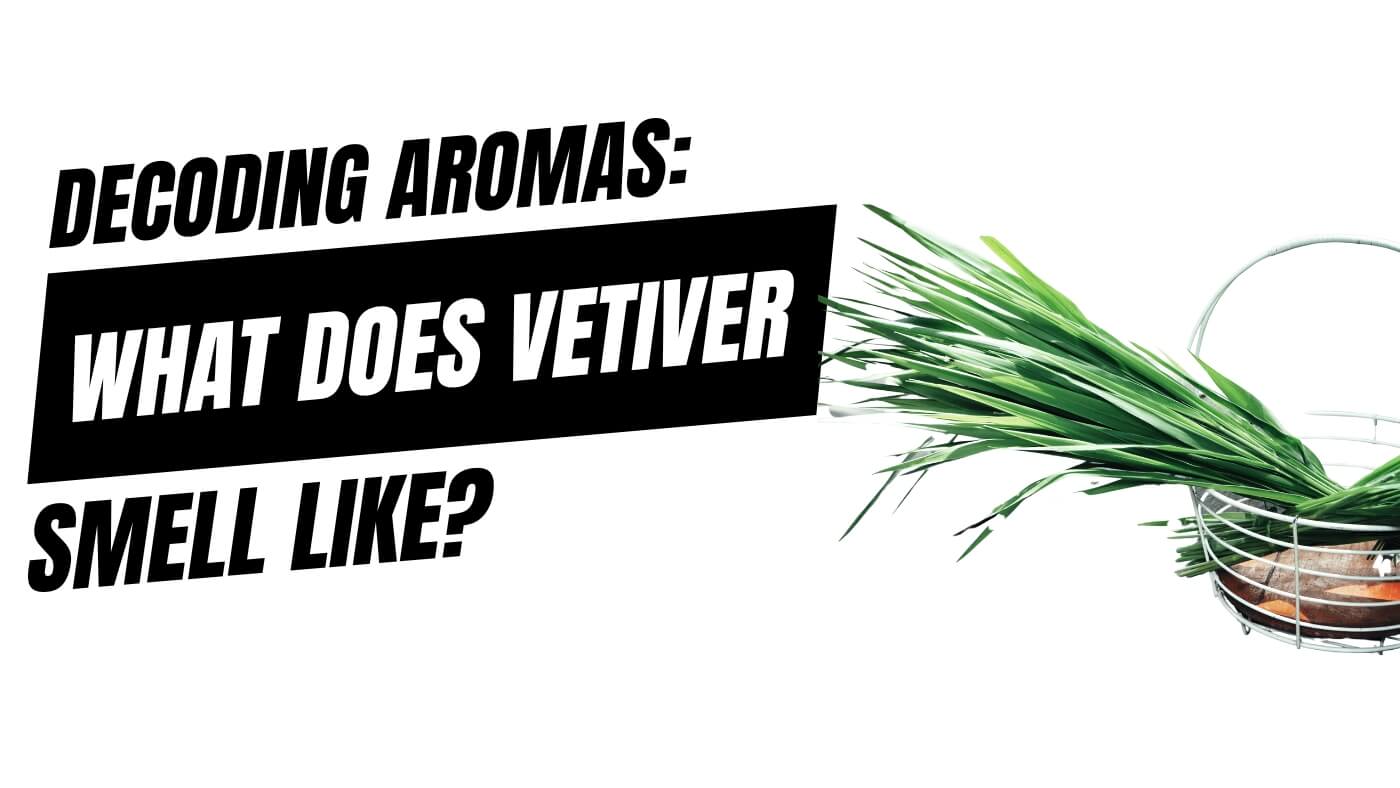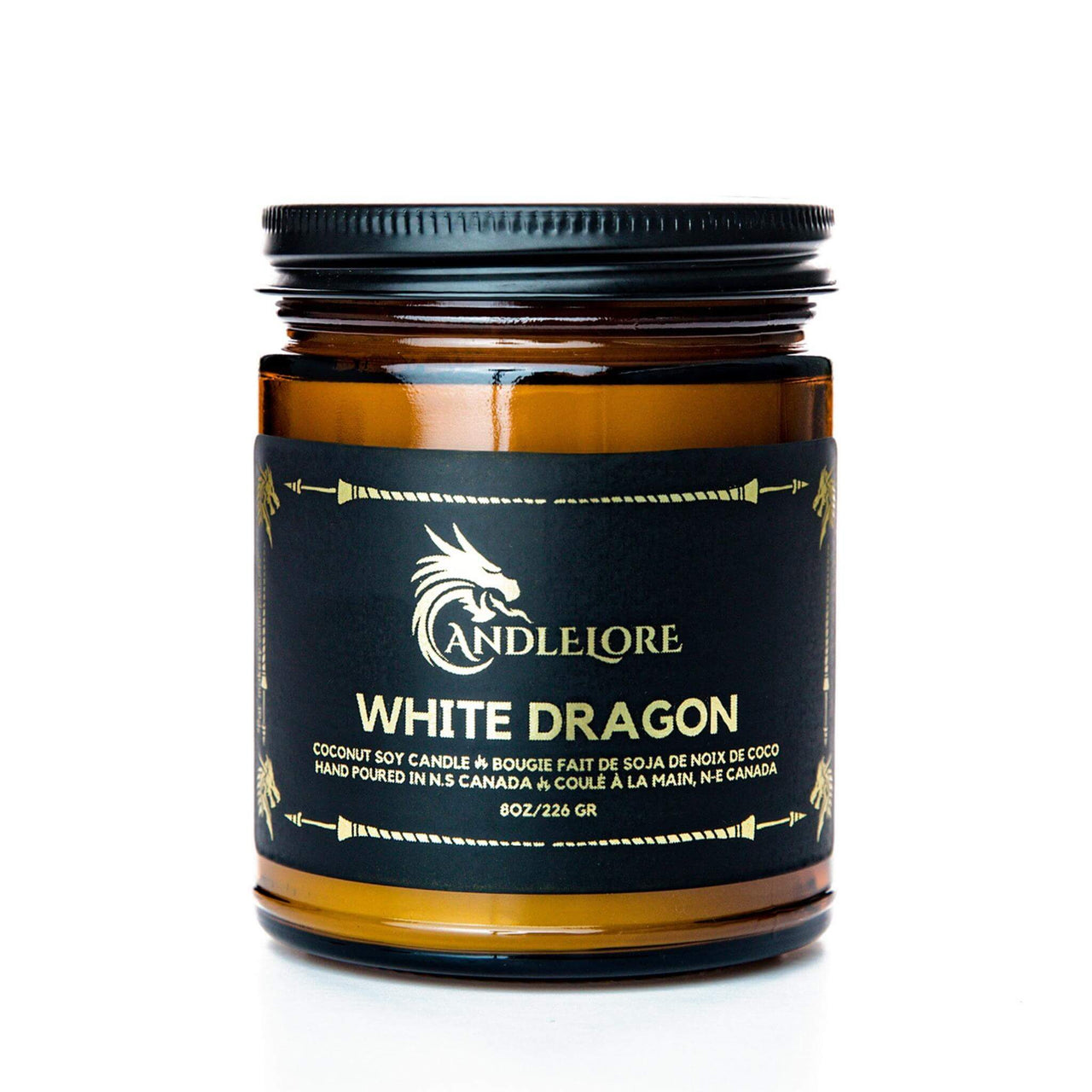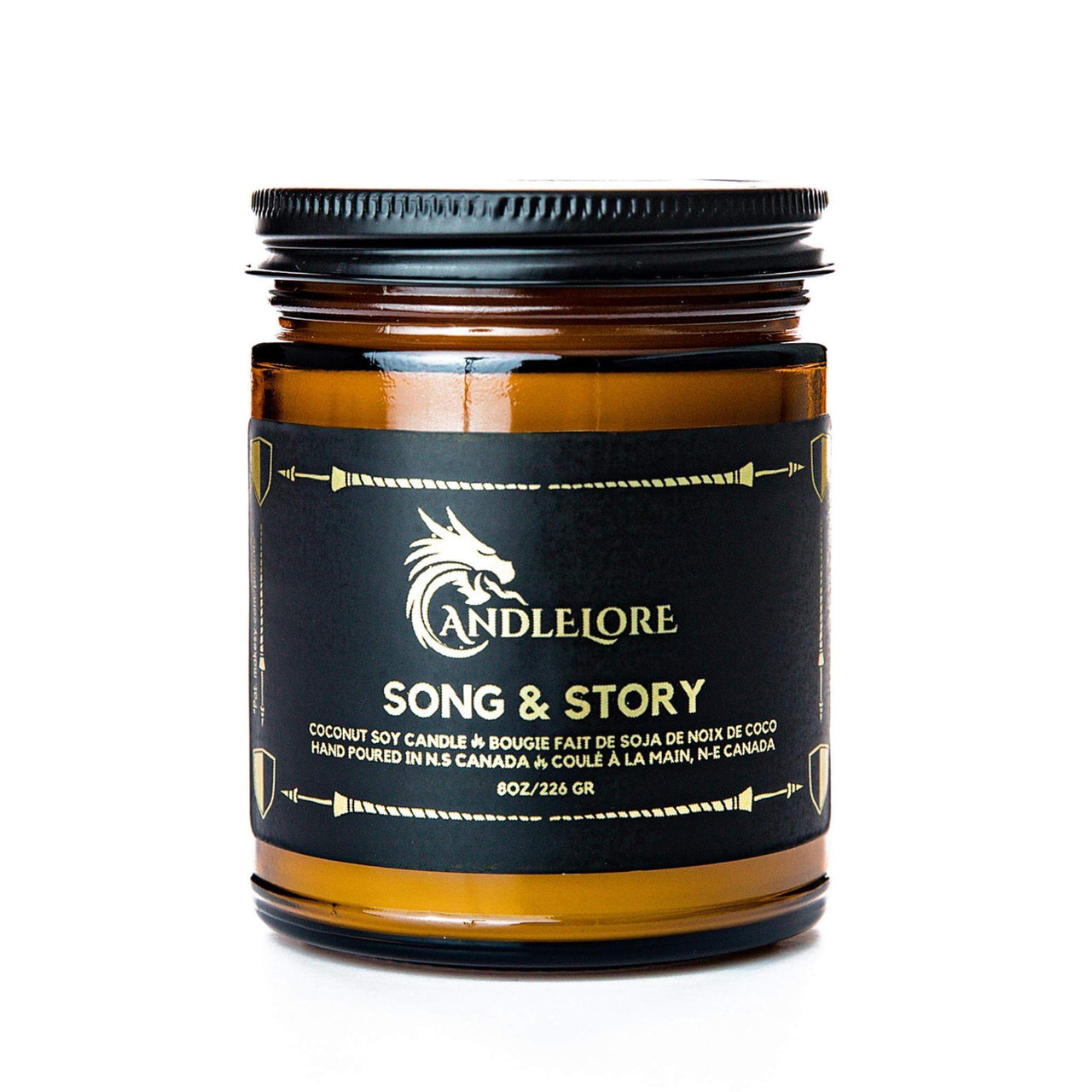Do you love the scent of citrusy bergamot? The musty aroma of patchouli? But what about vetiver – have you ever experienced its unique fragrance first-hand? Vetiver is an essential oil derived from a grass that's native to India and Sri Lanka, and it has been used for medicinal and religious purposes for centuries. Nowadays, vetiver carries multiple benefits in everything from skincare to candles. So if you've been wondering what exactly vetiver smells like, here's your chance to find out!
The Intriguing Scent of Vetiver
This complex fragrance is derived from the roots of a tall grass found in tropical regions. The result is a versatile aroma that can be used in fragrances for both men and women, as well as in countless other products for its impressive fixative properties. From the moment you encounter it, vetiver is unmistakable and endlessly fascinating, making it a standout ingredient, and a favorite scent in the candle world.
Decoding the Aroma: What Does Vetiver Smell Like?
Vetiver is a complex plant that has a distinct and powerful scent that captivates the senses. The aromatic oil extracted from the roots of the vetiver plant is used in perfumes, scented candles, and other fragrant products. Its earthy aroma is often described as woody, smoky, and musky with hints of honey and citrus.
The scent of vetiver is calming and can even be therapeutic, making it a popular choice in aromatherapy. There's no doubt that the vetiver fragrance is unique and recognizable, making it one of the most sought-after scents in the world. Whether you're a fan of earthy and woody fragrances or just looking for a new signature scent, the vetiver smell is definitely worth exploring.
What Is Vetiver?
Vetiver, also known as khus, is a perennial grass that is indigenous to India, where it has been used for centuries in Ayurvedic medicine. It is mainly grown in tropical regions of Asia, Africa, and the Americas and is cultivated for its roots, which contain a highly fragrant essential oil. The oil is deep and earthy, with smoky and woody undertones.
The vetiver plant's roots are so intertwined with the culture of South Asia that the word "vetiver" itself comes from Tamil, one of the oldest languages in the country. The grass has many cultural uses, including its use in basket weaving, as a natural insect repellent, and the plant's roots used as a natural mulch.
Vetiver has been used in the perfume industry since the early 19th century. Its essential oil is obtained from steam distillation of its harvested roots, which produces a thick, syrupy, dark-brown liquid. The resulting oil is then blended with other notes to create the final fragrance. The scent of Vetiver is rich, earthy and complex, making it a popular choice in perfumery for both masculine and feminine fragrances.
Vetiver's scent has been described as calming, grounding and soothing. It is often used in aromatherapy to help relieve stress and anxiety, and its woody aroma is believed to have a positive effect on mood, making it a popular choice for meditation rooms and spas.
Apart from its aromatic properties, Vetiver is also highly valued for its sustainable qualities. Its roots are deep and strong, making it excellent at preventing soil erosion, and it can survive in harsh environments where other crops cannot. Because of this, Vetiver is often used in land restoration projects to help combat desertification.
The Different Species Of Vetiver
First up, we have Chrysopogon zizanioides - the most commonly used species in perfumery. This variety is native to India and is often referred to as "Indian vetiver." Its aroma is earthy, woody, and slightly sweet. It's also prized for its fixative properties, meaning it helps perfumes last longer on the skin.
Next, we have Chrysopogon nemoralis, also known as "Malaysian vetiver." This species is native to Southeast Asia and has a sweeter, more floral aroma compared to Indian vetiver. It's also said to be more uplifting and energizing.
Moving on to Haiti, we have Chrysopogon zizanioides var. zizanioides - also known as "Haitian vetiver." This species has a smokier, more complex aroma compared to Indian vetiver. It's often used in niche perfumes and is prized for its depth and complexity.
Another lesser-known variety is Chrysopogon zizanioides var. martinicensis - also known as "Martinique vetiver." This species is native to the Caribbean and has a greener, fresher aroma compared to its Indian counterpart. It's often used in aromatherapy for its calming properties.
Last but not least, we have Chrysopogon zizanioides var. waddingtonii - also known as "Javanese vetiver." This species is native to Indonesia and has a lighter, more citrusy aroma. It's often used in perfumery for its balancing properties.
So why does the species of vetiver matter? Well, each one has a slightly different scent profile and set of characteristics. This means that perfumers and aromatherapists can use different varieties to achieve different effects. For example, if you're looking for a grounding, earthy scent, Indian vetiver might be your go-to. But if you want something fresher and more uplifting, Javanese vetiver might be a better choice.
It's also worth noting that the quality of vetiver can vary depending on factors like where it's grown, when it's harvested, and how it's processed. So even within the same species, you can get different aromas and qualities.
The History Of Vetiver
The history of vetiver is long and fascinating, filled with intricate stories and myths that make this plant so special.
The origins of vetiver can be traced back to India, where it was first cultivated around 4000 years ago. Ancient texts from the Ayurvedic tradition describe the use of vetiver in remedies for insomnia, anxiety, and skin ailments. It was also prized for its ability to cool the body during hot summers, which is why it was a popular choice for fans and matting materials.
Over time, vetiver spread throughout Southeast Asia, as it was traded along the spice routes, and became an important ingredient in religious ceremonies and traditional medicine. In Bali, it was used in a special ritual called mesatya, where it was believed to help cleanse the soul and protect the body from harm. In Thailand, it was used as a natural insecticide, and in perfumes and cosmetics.
Vetiver also played an important role in the history of perfumery. The ancient Egyptians used it as a base note in their perfumes and cosmetics, and the Romans imported it from India as a luxury item. In Europe, it gained popularity in the 17th and 18th centuries, where it was used in eau de colognes, and later became a key component in masculine fragrances.
Today, vetiver is cultivated in many countries, including Haiti, Indonesia, and India, where it remains an important crop for the fragrance industry. It is also valued for its ability to control erosion and soil erosion, making it an important component of land rehabilitation programs.
But perhaps what makes vetiver so special is its ability to evoke a sense of place and time. Its earthy and woody scent is evocative of the heat and humidity of Southeast Asia, and its complex profile can transport you to the balmy, exotic markets of India. Its roots hold the secrets of centuries of tradition, and its extract continues to be an important ingredient in traditional medicine, fragrances, and cosmetics around the world.
Vetiver in Perfumery: The Power of Earthy Notes
Vetiver has been hailed as the "oil of tranquility" due to its calming and grounding effects on the mind and body. But not only does the vetiver aroma provide a sense of relaxation, it is also a favorite among perfumers for its rich and complex scent. The vetiver fragrance is often described as earthy, woody, and smoky, with hints of sweetness and spice. Its unique character makes it a popular choice for both men's and women's fragrances. The scent of vetiver is known to have a long-lasting effect on the skin, creating a sophisticated and alluring aura. For those who appreciate the power of earthy notes in perfumery, the vetiver scent is a must-try.
Complementing Scents: Pairing Vetiver with Other Fragrances
Vetiver is a unique scent that is often described as earthy, smoky, and slightly sweet. It has a strong, woody aroma that makes it a popular ingredient in many fragrances. But did you know that vetiver can be even more enjoyable when paired with other scents? By complementing vetiver with other fragrances, you can create a scent profile that is completely unique and tailored to your preferences.
One of the most popular scents to pair with vetiver is bergamot. A citrus fruit, bergamot has an uplifting and refreshing scent that blends well with the earthy notes of vetiver. The combination of bergamot and vetiver is often used in cologne and body sprays for men, as it provides a fresh, masculine scent that's perfect for any occasion.
Another fragrance that goes well with vetiver is patchouli. Patchouli is a sweet, earthy scent that's been used in perfumes and other scented products for centuries. When paired with vetiver, patchouli adds depth and complexity to the fragrance, creating a unique aroma that's both seductive and comforting.
Sandalwood is another scent that beautifully complements vetiver. Sandalwood has a warm, creamy and woody scent that enhances the earthy richness of vetiver. Sandalwood and vetiver are commonly used in scented candles and incense, as they create a calming and grounding atmosphere that's perfect for relaxation.
If you're looking for a more floral scent to pair with vetiver, try lavender. Lavender has a fresh, calming and soothing aroma that perfectly complements the cool, earthy scent of vetiver. The combination of lavender and vetiver is commonly used in perfumes and body sprays for women, as it provides a romantic and feminine scent.
Vanilla is another fragrance that pairs well with vetiver. Vanilla has a sweet, warm and comforting scent that enhances the earthy notes of vetiver, creating a scent that's both cozy and sensual. The combination of vanilla and vetiver is often used in scented candles and body lotions, as it provides a luxurious and relaxing fragrance experience.
In addition to these scents, there are many other fragrances that complement vetiver, including cedarwood, frankincense, jasmine, ylang-ylang, and more. Vetiver is a versatile scent that blends well with a variety of fragrances, making it a popular choice in the perfume and fragrance industry.
Beyond the Scent: The Therapeutic Benefits of Vetiver Oil
Vetiver oil is a sweet-smelling essential oil that has been praised for its therapeutic benefits. Beyond its pleasant vetiver aroma, this oil is known for its calming, grounding and balancing effects on the mind and body. It is commonly used in aromatherapy for its ability to ease stress, reduce anxiety, and promote tranquility and relaxation. Many people also use vetiver oil for its reputed immune-boosting and anti-inflammatory properties. From unwinding after a long day to alleviating physical tension, vetiver oil has a host of benefits to offer, making it a valuable addition to any wellness routine.

Vetiver in Everyday Products: From Candles to Cosmetics
Vetiver is a tropical grass that has gained popularity in recent years for its distinct scent. This versatile aroma is now a common ingredient in a variety of everyday products ranging from candles and wax melts, to cosmetics. The earthy and woody notes of vetiver create a luxurious and calming experience that has captivated consumers worldwide. The scent of vetiver is not only delightful but also has therapeutic properties, making it an ideal ingredient for self-care products. The use of vetiver in everyday products truly emphasizes the beauty and versatility of nature and brings a touch of luxury to ordinary experiences.
The Emotional Impact of Vetiver: How Scent Influences Mood
The power of scent cannot be underestimated, especially when it comes to vetiver. This earthy, woody aroma has been used for centuries in traditional medicine, and research has shown that it can have a powerful impact on our emotions. Whether diffused in a room or used as a personal fragrance, vetiver scent has been linked to reduced anxiety and stress levels. Some people find it particularly grounding and soothing, while others love its energizing effect. It's amazing to think that something as simple as a scent can have such a profound influence on our mood and wellbeing. So, if you're feeling down or stressed out, consider giving vetiver a try and see how it affects you!
Aromatherapy and Vetiver: Healing Scents for the Mind and Body
Aromatherapy has been proven to have a positive impact on both the mind and body, and vetiver is one of the scents that stands out in its healing properties. With its earthy and musky aroma, vetiver has been used for centuries to calm the mind, alleviate anxiety, and even improve sleep quality. But its benefits don't stop there. Vetiver oil has been found to have anti-inflammatory properties that can help soothe sore muscles and alleviate joint pain. If you're looking for a natural way to improve your wellbeing, incorporating the vetiver smell into your aromatherapy routine may be just what you need.
Cultivation and Sustainability: Understanding the Vetiver Industry
The vetiver plant is no ordinary grass. With its unique earthy and woody smell, it has become an important raw material in the fragrance industry. But beyond its aromatic properties, vetiver also plays a crucial role in sustainability efforts and soil conservation. Through cultivation practices like contour hedgerows and intercropping, farmers have been able to utilize the vetiver plant to combat soil erosion and create a more resilient agricultural system. Understanding the vetiver industry not only sheds light on the olfactory world of fragrances, but also highlights the potential of sustainable farming methods.
From Plant to Perfume: The Extraction Process of Vetiver
Have you ever wondered where that unique, earthy smell in your perfume comes from? Look no further than vetiver! Extracting the essential oils from this plant is a fascinating process. First, the roots are harvested and cleaned before being sliced into small pieces. These pieces are then dried and steam distilled to extract the oil. But what makes the smell of vetiver so enticing? It's all thanks to the chemical composition of the oil, which contains over 100 different compounds. The result is a scent that is both woody and slightly sweet, with complex undertones that vary depending on the harvesting location. So next time you catch a whiff of vetiver in your favorite fragrance, take a moment to appreciate the intricate process behind its creation.
Fashion and Fragrance: Vetiver’s Role in Designer Perfumes
The world of fashion and fragrance has long been intertwined, with designer perfumes often serving as an olfactory extension of a designer's fashion aesthetic. One ingredient that has become a staple in many designer fragrances is vetiver. Its versatility allows it to be used in a range of fragrance styles, from fresh and invigorating to warm and seductive. Its popularity among designers is likely due to its ability to add depth and complexity to a fragrance while still remaining subtle and understated. Whether you're a longtime lover of designer perfumes or a curious newcomer, exploring the role of vetiver in fragrance is a fascinating journey into the world of scent.
Culinary Adventures: Exploring the Use of Vetiver in Food and Drink
Embark on a culinary adventure and explore the unique flavors of vetiver in your food and drink. This versatile plant is not only known for its earthy and woody scent, but also for its ability to enhance the taste of your favorite dishes.
One of the most popular culinary uses of vetiver is in tea. Vetiver tea is commonly consumed in the Indian subcontinent and is believed to have numerous health benefits such as aiding digestion, promoting relaxation, and reducing anxiety. The tea is made by boiling chopped vetiver roots along with water and other ingredients like honey, cinnamon, and ginger. The resulting tea is rich, fragrant, and has a slightly bitter taste.
Apart from tea, vetiver also finds its way into various desserts and sweet dishes. In Indonesia, vetiver is used to flavor traditional rice cakes known as wajik. The roots are boiled, and the liquid is used to cook glutinous rice, palm sugar, and coconut milk, resulting in a delicious dessert that has a unique earthy flavor. Similarly, in India, vetiver is added to a type of sweet syrup known as sharbat. This syrup is made by cooking sugar along with vetiver roots and rose petals. The resulting syrup is then diluted with water and consumed as a refreshing drink.
Vetiver also has savory culinary uses. In Thailand, vetiver is a common ingredient in soups and curries. The roots are chopped and added to dishes like tom yum soup and green curry, where they add a distinct flavor and aroma to the dish. In Indonesia, vetiver is used to flavor a traditional dish called nasi ulam. This dish is made by mixing cooked rice with various herbs and spices like lemongrass, turmeric, and vetiver roots. The resulting rice is fragrant, flavorful, and pairs well with grilled meats and vegetables.
The Enduring Appeal of Vetiver's Aroma
The rich and distinct scent of vetiver has captivated people for centuries, and its enduring appeal shows no signs of diminishing. Whether it's used in a cologne or perfume, as an essential oil, or in a room spray, the aroma of vetiver is unmistakable. It's earthy and woody, yet also fresh and complex, making it a versatile fragrance that can be incorporated into many different products. Some people describe the scent of vetiver as smoky, while others find it to be more grassy or citrusy. Despite these differences in perception, there is no denying the allure of vetiver's unique and timeless fragrance.
In conclusion, vetiver is beloved because of its versatility. From its calming effects on the mind and body to its role in fashion and culinary adventures, vetiver is an intriguing fragrance that can be used in various ways. Whether you're using it as an aromatherapy tool to ease stress or enjoying its subtle complexity in a designer fragrance, vetiver is sure to be an enjoyable addition to your life.
To smell vetiver in a full bodied mix, check out the candle below.




